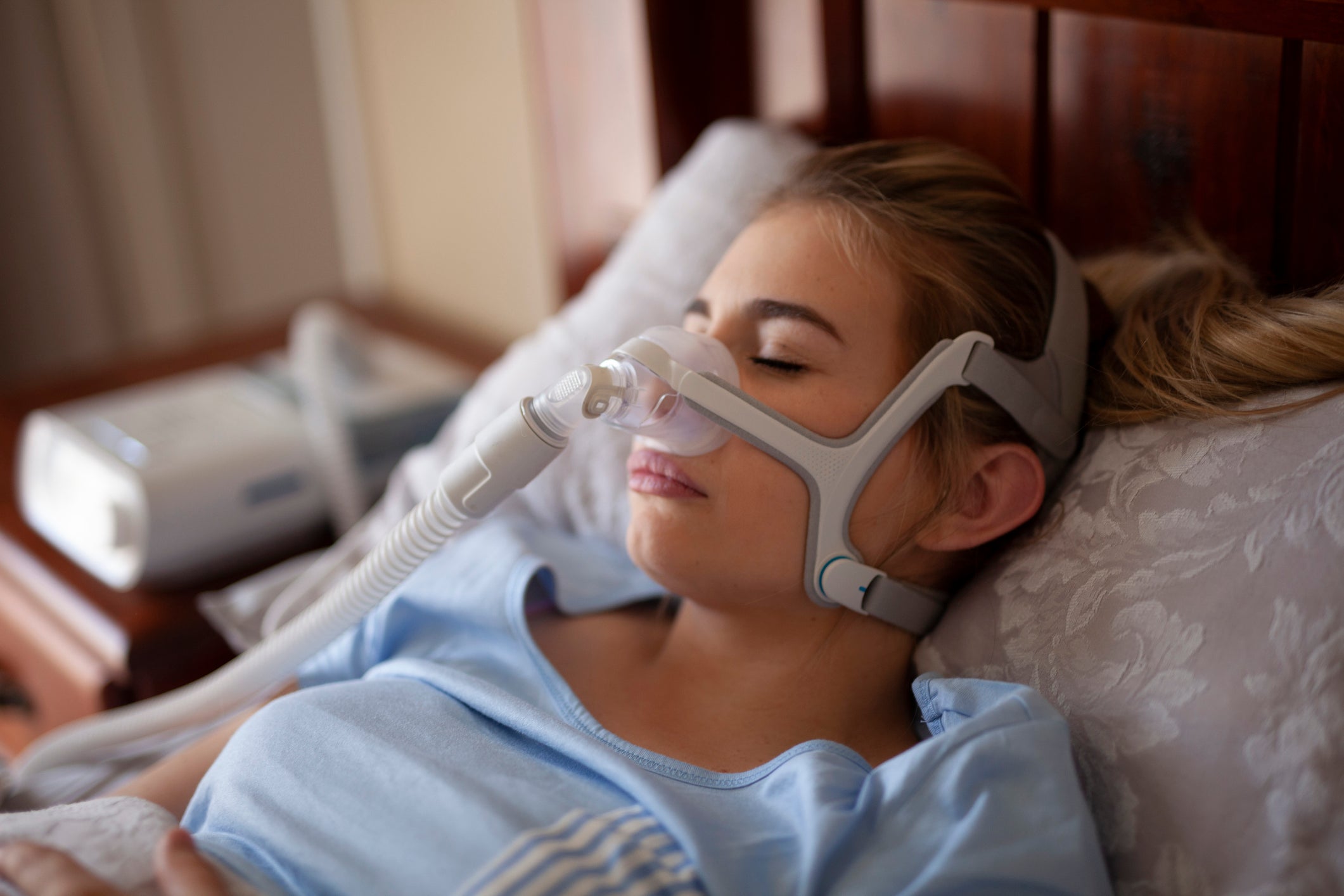Snoring before age 50 is a health ‘red flag’, experts suggest
Doctors warn that snoring should be treated as a health ‘red flag’

Young adults who snore at night have a significantly higher risk of having a stroke and developing heart disease when they get older, a study has warned.
Doctors have said that snoring should be treated as a “red flag” among adults below the age of 50. The study found that young adults who snore are 60 per cent more likely to develop a stroke when they reach middle age, and five times more likely to develop a heart rhythm disorder.
The researchers presented their findings at the European Society of Cardiology Congress in Amsterdam.
They examined data from 766,000 US adults aged 20 to 50. These included 7,500 adults with obstructive sleep apnoea, a condition that causes interruptions to normal breathing during sleep. This can lead to loud snoring and interrupted sleep as sufferers wake up while struggling to breathe.
The study found that, over the 10-year follow-up period, patients with sleep apnoea were 60 per cent more likely to suffer a stroke compared to those who did not snore as frequently.
They were also five times more likely to develop atrial fibrillation, a heart condition that causes irregular and often abnormally fast heart rate. Symptoms of atrial fibrillation include heart palpitations, dizziness and shortness of breath.
Lead author Professor Sanjiv Narayan, of Stanford University, said: “Sleep apnoea is really common but we sort of ignore it because we think it’s trivial or just a little bit of a nuisance.
“Until now no one’s really shown the magnitude of the size of the risk for heart diseases. That’s what really surprised us.”
He added that the study looked at “relatively young people” who may not know they are at risk.

“If they had a stroke, it would devastate young families. It could take them away from their workplace. It would destroy their lives for the next 40 years.”
The researchers suggest that GPs should ask patients regularly if they snore and highlight if as a heart health “red flag” that could show they need more tests or medication.
Obstructive sleep apnoea is fairly common and is estimated to affect 1.5m adults in the UK. However, according to the British Lung Foundation, up to 85 per cent of sufferers are undiagnosed and go untreated.
Men who are elderly and overweight are particularly prone to sleep apnoea. Interruptions to normal breathing can cause a dip in blood oxygen and cause the heart and blood vessels to strain.
Prof Narayan explained: “When you are unable to breathe it raises the pressure in the lungs until you ultimately wake up gasping for breath. That puts a pressure load on the heart, which causes stretch in the heart chambers, and that could cause the atrial fibrillation.
“Another theory could be that the oxygen levels in the blood fall for tens of seconds and that could put stress on the heart.”
Sleep apnoea can be treated using a CPAP machine, a device that pumps air into a mask that the patient wears over their mouth or nose while they sleep.
The NHS also recommends making lifestyle changes such as losing weight if the patient is overweight and exercising regularly, which can improve symptoms. Sleeping on your side may also help relieve sleep apnoea.
Join our commenting forum
Join thought-provoking conversations, follow other Independent readers and see their replies
Comments


Bookmark popover
Removed from bookmarks